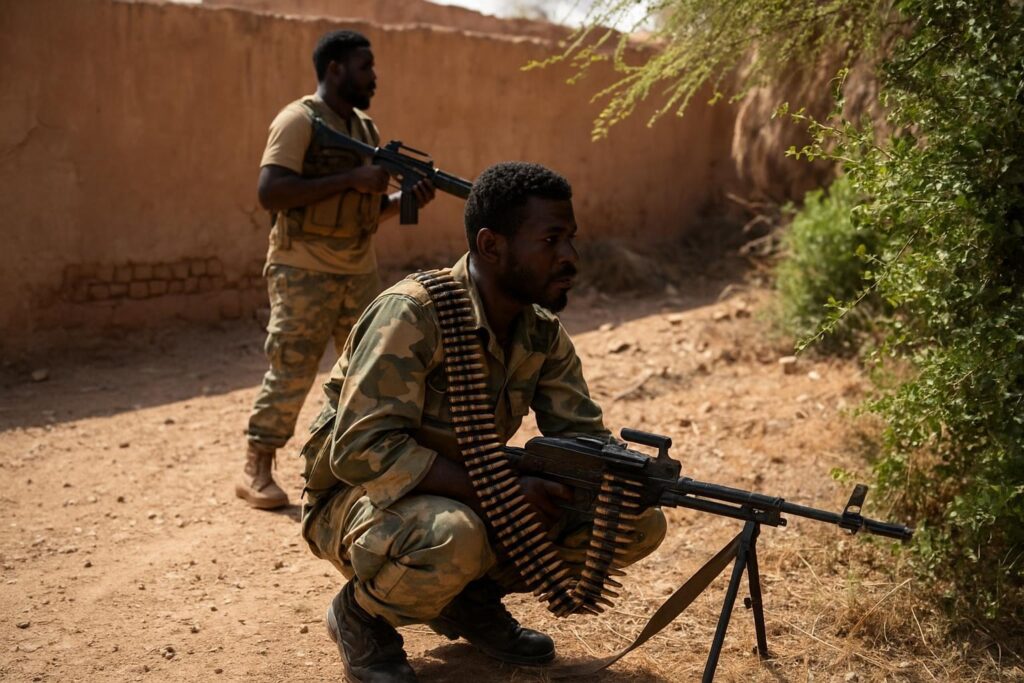Nairobi symposium presses for peace in Sudan
In Nairobi, senior African and international envoys gathered under the Kofi Annan Foundation, Amina Life and the Maghreb-African Center to renew diplomatic momentum toward ending Sudan’s 30-month conflict.
Delegations from Kenya, the United States, Canada and others heard consistent claims that Khartoum’s regular army prioritises battlefield gains over negotiation, having skipped forums in Jeddah, Manama and Geneva.
Military-first stance sparks global concern
Speakers argued that arms deals reportedly struck with Iran, Turkey and Pakistan underline a strategy centred on force, not compromise.
“The war has created catastrophic humanitarian conditions,” warned former Kenyan Foreign Minister Amina Mohamed, urging “constructive dialogue before the window closes.”
Humanitarian crisis deepens across Sudan
UN humanitarian officer Twabia Gomo estimated ten million people driven from their homes, with shortages of food and medicine crippling Darfur and Kordofan camps.
Three in four Sudanese women now face heightened health risks, he added, calling for unobstructed aid corridors.
Rising militia activity threatens region
Former Tunisian diplomat Mongi Hamdi cautioned that Islamist fighters, Tigray elements and cross-border gunmen could transform the Horn of Africa into “a hotbed of major conflict.”
Allegations of chemical weapon use by the army, he said, demand independent investigation.
Calls for African-led mediation intensify
Participants pressed IGAD and the African Union to convene all factions, arguing that only an interim civilian administration followed by elections can stabilise Sudan.
Former IGAD chief Mahboub Al-Moallem stressed revisiting proposals tabled in Jeddah, Manama and Geneva to prevent negotiation fatigue.
Civil society urges end to polarisation
Bakri Al-Jak of the Democratic Alliance “Sumud” accused hard-line Islamists of exploiting hate speech to prolong violence and block civilian rule.
“The vast majority of Sudanese see no good in war,” he said, backing the Nairobi initiative as a chance to return the crisis to Africa’s agenda.
What next for peace efforts?
Observers believe sustained diplomatic pressure, targeted sanctions and coordinated humanitarian delivery could incentivise the army and Rapid Support Forces to re-enter talks.
For now, the symposium’s communique keeps hope alive that persistence, not firepower, will chart Sudan’s path to a lasting settlement.


